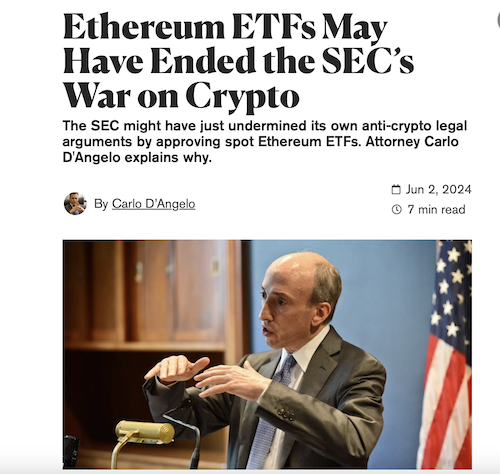The Texas Court of Criminal Appeals issued a groundbreaking decision State v. Heath, 696 S.W.3d 677, that reinforces and expandes the scope of prosecutors’ discovery obligations under Article 39.14 of the Texas Code of Criminal Procedure, reshaping how the state must handle evidence disclosure. For criminal defense attorneys, this ruling is not just a win but a call to action in leveraging discovery statutes for client advocacy.
As noted in the Court's opinion: In this context, "the state" means the State of Texas and includes prosecutors and law enforcement. "As soon as practicable" as the phrase appears in Article 39.14(a) means as soon as reasonably possible and does not contain a knowledge requirement on behalf of the prosecution. Thus, items discoverable under Article 39.14(a) that are in the possession of law enforcement must be produced as soon as practicable after the State’s receipt of a timely request for discovery. This case also requires us to consider whether a trial court has the authority to exclude evidence that was not timely disclosed by the State absent a showing of bad faith or prejudice. We agree with the court of appeals that under the circumstances of this case the trial court had the authority to exclude the evidence at issue. Accordingly, we affirm the judgment of the court of appeals.
Case Overview: A Simple Request, a Complex Outcome
Dwayne Robert Heath was indicted for injury to a child in 2016. Defense counsel promptly requested discovery, which yielded initial disclosures but not a crucial piece of evidence: a 911 call made on the day of the alleged offense. The prosecution claimed it only learned of the recording six days before trial and disclosed it immediately. Heath moved to suppress the late-disclosed evidence, arguing it violated Article 39.14(a).
The trial court sided with the defense, ruling that the delay in disclosure contravened the state’s statutory obligations. On appeal, the state contended that suppression was unwarranted in the absence of bad faith or prejudice to the defense. Ultimately, the Court of Criminal Appeals affirmed that the state’s duty to disclose extends far beyond the prosecutor’s immediate knowledge, encompassing evidence in law enforcement’s possession.
Core Legal Issues and the Court’s Findings
1. Defining "The State" Under Article 39.14
The court clarified that "the state" includes not only the prosecuting attorney but also law enforcement and other state agents. This broad definition ensures that evidence held by police, even if unknown to the prosecutor, is subject to disclosure.
Key Takeaway: Prosecutors must actively inquire about evidence held by law enforcement. Ignorance is no excuse under the statute.
2. Interpreting "As Soon As Practicable"
The court interpreted "as soon as practicable" to mean the state must disclose evidence promptly after a timely request, irrespective of when the prosecutor becomes aware of its existence. The ruling shifts the burden to prosecutors to be proactive in coordinating with law enforcement to ensure compliance.
Key Takeaway: Defense counsel should emphasize the timeline of requests and disclosures to highlight non-compliance.
3. Exclusion as a Remedy
The trial court’s exclusion of the 911 call was upheld as a proper exercise of discretion. The court acknowledged that while exclusion is a severe remedy, it may be appropriate when the state fails to fulfill its discovery obligations. Notably, the court rejected the state’s argument that bad faith or demonstrable prejudice was necessary to justify suppression.
Key Takeaway: Defense attorneys can successfully argue for exclusion based on statutory violations alone, especially when the discovery process’s integrity is at stake.
The Practical Impact on Criminal Defense Practice
1. Expanded Discovery Rights
This decision solidifies the right to comprehensive discovery. Defense attorneys should frame discovery requests broadly to encompass all evidence in the possession of the state or its agents.
2. Proactive Challenges
Late disclosures are no longer a matter of prosecutorial oversight. The defense can hold the state accountable for delays by invoking Heath and arguing for sanctions or exclusion.
3. Advocacy for Timeliness
When evidence surfaces late, defense counsel should argue that it compromises preparation, even if no explicit prejudice is evident. The court’s recognition of statutory violations alone is a powerful tool for suppressing improperly disclosed evidence.
Strategic Insights for Defense Attorneys
The Heath ruling offers a blueprint for defense strategy:
1. Document Discovery Requests Ensure requests are clear, timely, and comprehensive. Follow up to confirm the state has consulted with law enforcement.
2. Emphasize Non-Compliance: Use timelines to highlight the state’s failure to act "as soon as practicable."
3. Argue for Exclusion: Push for suppression where late disclosure undermines trial preparation, citing Heath as authority.
Conclusion: A New Era of Accountability
State v. Heath marks a pivotal moment in Texas criminal law, reshaping discovery practices and holding the state to a higher standard of transparency. For defense attorneys, it underscores the power of leveraging Article 39.14 to protect clients’ rights and ensure fairness in the justice system.








